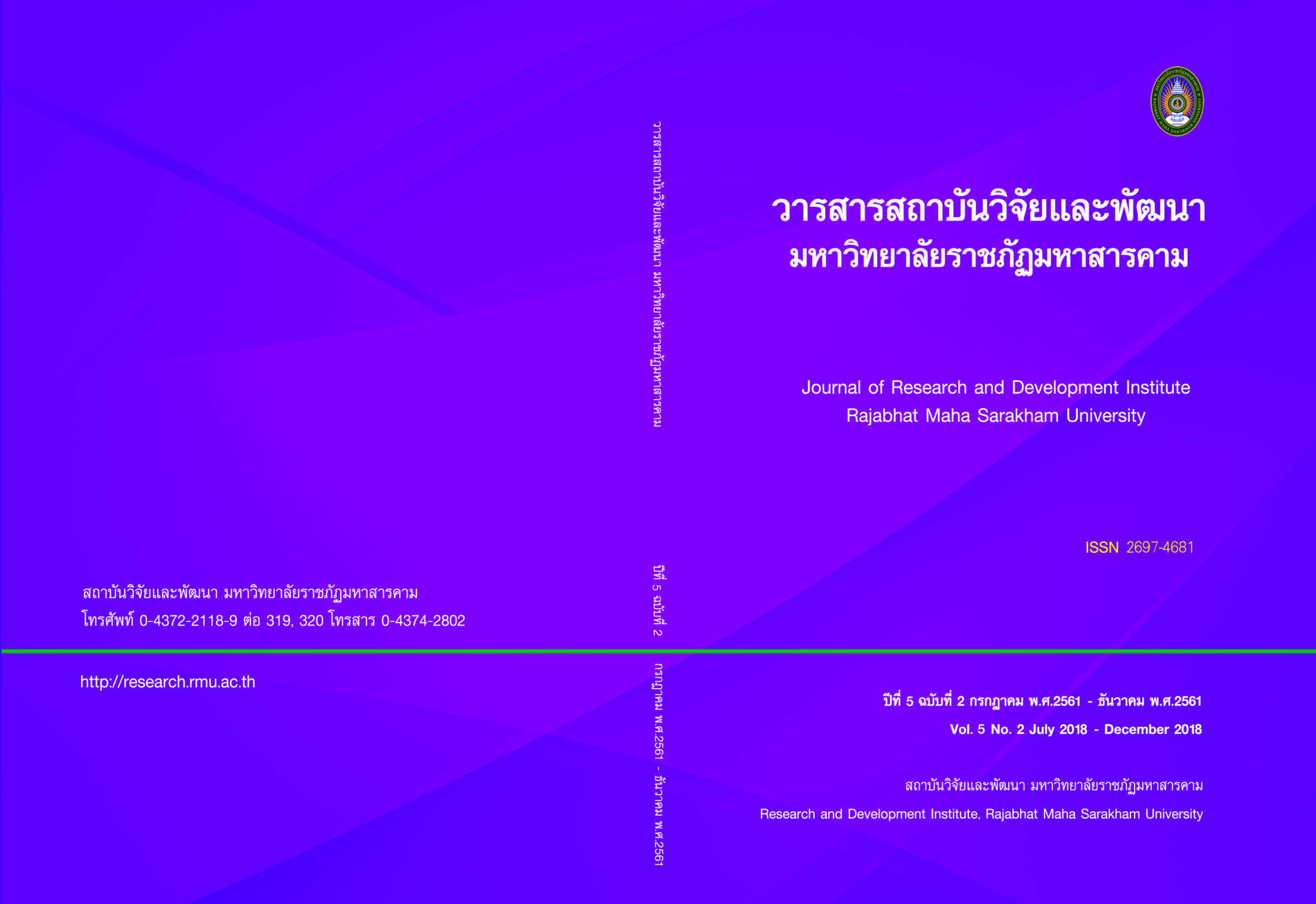Ethical Decision Making of Media Profession in Digital Terrestrial Television Sector
Keywords:
Ethical decision making of media profession, Ethical problems of media profession, Measures of media ethics developmentAbstract
The purposes of this study were to study ethical decision making of media profession in digital terrestrial television sector and to investigate relationships between such ethical decision making and ethical problems of media profession as well as media ethics development in order to use policy making process related. The research methodology of this study was an exploratory sequential mixed methods research which used qualitative and quantitative approaches in the research process to explore research findings. The research instruments were mainly consisted of in-depth interview and survey research. The research results found that; the ethical decision making of media profession in digital terrestrial television sector comprising journalist, media organization, media professional organization and society. The association between ethical decision making of media profession in digital terrestrial television sector and ethical problems of media profession was rather low degree. (R² = .393; SEE = ± 16.16) The result of the association between ethical decision making of media profession in digital terrestrial television sector and measures of media ethics development indicated that ethical decision making was associated with measures of media ethics development in positive direction with significance in terms of statistics, in particular media professional organization. (R² = .531; SEE = ±.38; Sig. < 0.01)
References
Cronbach, Lee. J. (1990). Essentials of Psychology Testing. 5th edition, New York : Harper Collins Publishers Inc. Doungkamol Chatphrasert. (2004). The Status of Communication Research on Information Technology. Bangkok: Faculty of Communication Arts Chulalongkorn University. [in Thai].
Doungkamol Chatphrasert. (2004). The Status of Communication Research on Information Technology. Bangkok: Faculty of Communication Arts Chulalongkorn University. [in Thai].
Likert, Rensis. (1967). “The Method of Constructing and Attitude Scale”. In Reading in Fishbeic, M (Ed.), Attitude Theory and Measurement (pp. 90-95). New York: Wiley & Son. Pirongrong Ramasoota Rananand and Sasithon Yuwakosol. (2003). The Research Report of The Oversight of Content of Radio and Television Media in Thailand (Project of Media System Reform: Regulatory Content by state, Self-regulation and Public Media. Bangkok : The Thailand Research Fund. [in Thai].
Rovinelli, R. J. and Hambleton, R. K. (1977). “On the use of content specialists in the assessment of criterion-referenced test item validity”. Dutch Journal of Educational Research, 2, 49-60.
Siriwan Anantho and Santhat Thongin. (2013). Ethics of the mass media profession. Nakhon Pathom : Mahidol University Press. [in Thai]. Worawan Ongkrutraksa and Yubon Benchararakit. (2010). “Study of the Making Process of Strategic Public Relations Plan in the multinational Business Organization”. Journal of Public Relation and Advertising, 3 (1) : 2010 p. 1-17. [in Thai].
Yamane, T., (1970). Statistics : An introductory analysis. 2nd edition. Tokyo : John Weather-Hill.
Downloads
Published
How to Cite
Issue
Section
License
Articles that are published are copyrighted by the authors of the articles







